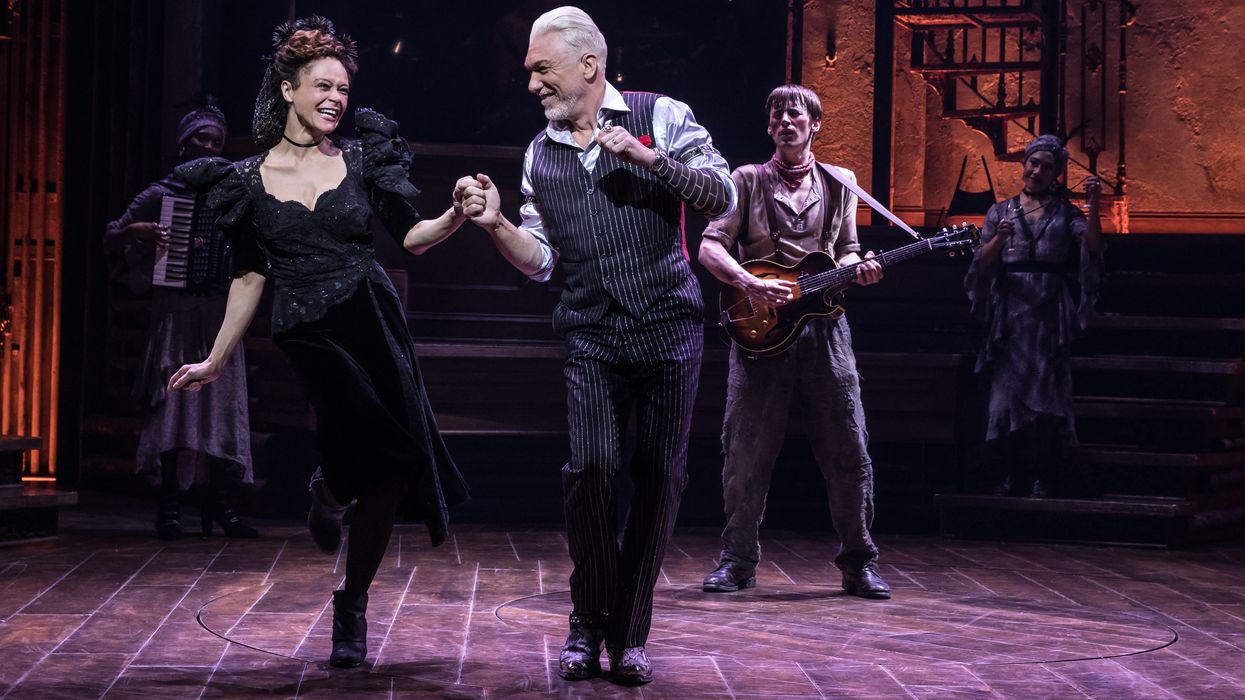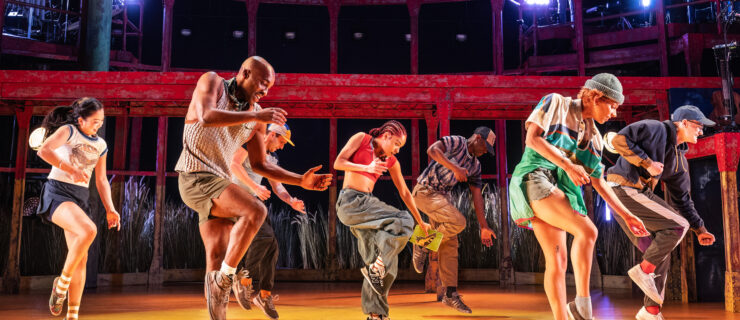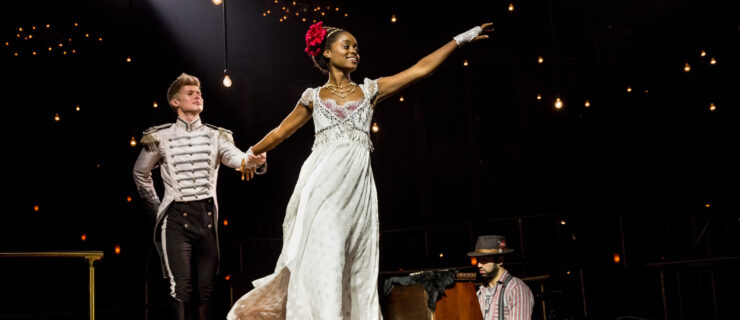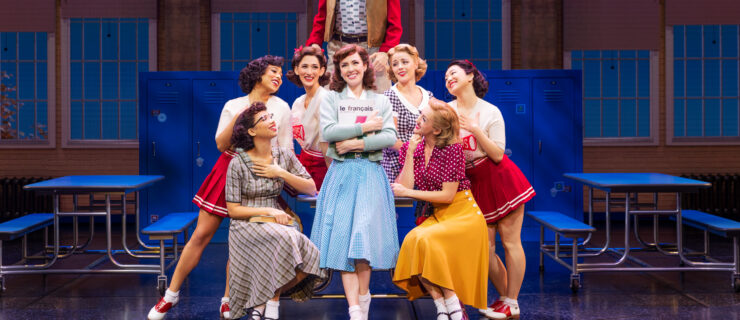How Hadestown's Patrick Page Overcame His Greatest Fear: Dancing
There’s a rare moment in Broadway’s Hadestown where the audience is able to breathe a sigh of relief. The smash-hit success is not well-known for being light-hearted or easy-going; Hadestown is a show full of workers and walls and, well, the second act largely takes place in a slightly modernized version of hell.
But deep into the second act, the show reaches a brief homeostasis of peace, one of those bright, shining moments that allows the audience to think “maybe it will turn out this time,” as the character Hermes keeps suggesting.
After songs and songs of conflict and resentment, Hades, the king of the underground, and his wife, the goddess Persephone, rekindle their love. And, unexpectedly, they dance. It’s one of the most compelling moments in the show.
But when Patrick Page, who plays Hades, first learned that his character’s transformative moment would be a dance, his first thought was denial, he says. “I tried to ignore it, but I was scared.”
Page has a tumultuous history with dance. He’s always loved to watch others dancing (in particular, his wife, Paige Davis), but he’s never considered himself to be someone who can dance. In his first Broadway show, Beauty and the Beast, Page was cast as Lumière, the singing candelabra, and his character’s big moment was a soft-shoe tango—which posed an immediate challenge for him.
“I was sure I was going to be fired,” says Page. “Every day I could see that I was frustrating the choreographer tremendously, so I kept going to my understudy, secretly, and asking him to work the dance with me because he could do it, and I couldn’t.”
Of course, Page wasn’t fired. “Eventually, I got comfortable with it, and I got to love the movement of Lumière,” he says. After Beauty and the Beast, he went on to shock audiences with some of the most iconic Broadway villains, like the Green Goblin in Spiderman: Turn off the Dark, the Grinch in Dr. Seuss’ How the Grinch Stole Christmas! The Musical, and Frollo in The Hunchback of Notre Dame. He was formidable in every role—and rarely expected to dance.
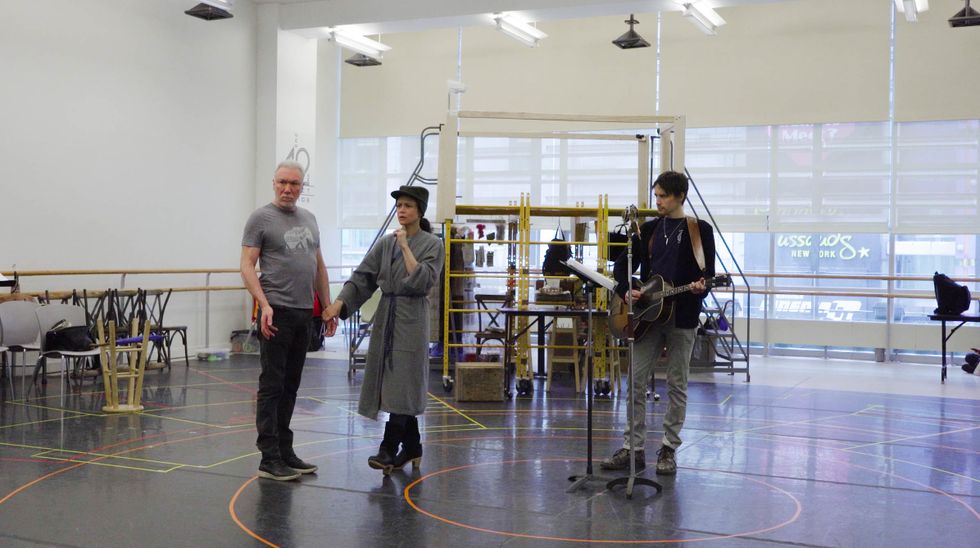
Patrick Page and Amber Gray rehearsing Hadestown
Courtesy Hadestown
Which brought him to Hadestown. And dancing, again. So, of course Page was initially scared, even frightened, as he describes it. But there was something about this show in particular which meant he had to push through his fear.
“If you’ve been in the business as long as I have, you learn that good material like this doesn’t come along that often—it comes along once a decade or so,” says Page. “But when it does, you grab, and you hold on through whatever your terror is, whether your terror is dancing, or singing, or being up in front of people, because you get to work on this incredible material that’s going to keep feeding you.”
He worked closely with the show’s choreographer, David Neumann, and his Persephone, Amber Gray. He tried to embrace his own mistakes, however numerous they might be.
“As with anything in life, with dance, you have to first embrace imperfection. You have to allow it to be imperfect for as long as necessary,” says Page. “And if it’s me, it’s never going to be perfect. But you have to be comfortable with it not being right for as long as it takes.”
For Page, it’s been a three-year process—and it’s an ongoing one. He’s been with Hadestown through every ideation of the show, through New York Theatre Workshop, through Edmonton, through the West End, and now, on Broadway. Today, he cites his dance with Persephone as his favorite scene.
“I worry about it every night,” he says. “But the fact that it’s still challenging for me is part of what makes it fun.”
In order to find more ease within the number, Page focuses on the intention of his character, Hades. “Since the movement itself terrifies me,” he says, “I think about what I’m saying with each movement—and then I can forget that I’m frightened.”
Onstage, this translates. Page’s Hades looks at comfortable, almost devil-may-care (pardon the pun) at times. Even amidst Hadestown‘s moving set pieces, he seems at ease, whether he’s scaling staircases, crossing turntables, or descending into his underworld.
Of course, some of this might come with experience. “I did Spiderman: Turn Off the Dark,” Page says. “So, there’s no amount of automation that can intimidate me.”
